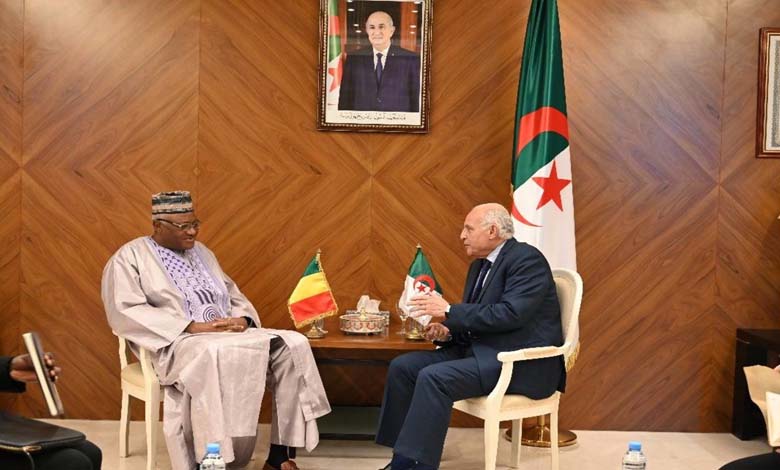Rising Tensions Between Mali and Algeria

Algeria closes its airspace to Mali in a move reciprocated by Bamako, as tit-for-tat measures signal a deepening crisis between the two neighboring countries.
At a time when Algeria was expected to pursue de-escalation and adopt diplomatic solutions to contain the crisis with Mali following the downing of a reconnaissance drone, the Algerian government opted instead to escalate tensions by announcing an airspace ban between the two countries. This decision not only affects bilateral relations but also significantly contributes to Algeria’s growing regional isolation.
-
Moroccan Diplomatic Expulsion Reveals Algeria’s Discontent with Rabat’s Successes
-
Legislative Initiative to Eliminate the French Version of the Official Gazette in Algeria
The current crisis began on April 1, 2025, when Algeria’s Ministry of Defense announced that its army had shot down an armed reconnaissance drone that had entered its airspace near the desert town of Tinzaouatine in the far south. The ministry stated that the drone posed a threat to Algeria’s national security and was dealt with militarily. In contrast, the Malian government denied any incursion, stating the drone was flying just 9.5 kilometers from the shared border.
Algeria’s Ministry of Foreign Affairs insisted that the drone had repeatedly violated Algerian airspace and announced the closure of its airspace to all flights to and from Mali as of April 7, 2025. This move signaled Algeria’s intent to assert its sovereignty and military strength but also deepened its regional isolation amidst escalating tensions with neighboring countries.
-
‘Azawad’ Denies Tebboune’s Claims and Embarrasses the Army in the Release of a Spanish Hostage
-
Signs of Tension between Turkey and Algeria Over Participation of ‘Separatist’ Kurds in a Tindouf Conference
As tensions mounted, the Malian government responded swiftly and harshly by shutting its own airspace to Algerian planes and accusing Algeria of “sponsoring international terrorism.” Prior to this, Mali, along with its allies Burkina Faso and Niger, had recalled their ambassadors from Algeria—a strong signal of diplomatic protest.
Algeria, in turn, recalled its ambassadors from Niger and Mali and delayed the appointment of its new ambassador to Burkina Faso. This series of diplomatic escalations highlights the severity and growing complexity of the crisis, revealing a significant deterioration in Algeria’s relations with the Sahel countries—once strategic allies.
-
“The Snare of the Trap” Documents Algeria’s Cross-Border Violations
-
Algeria Offers Aid in Exchange for Closing the Case of Defective Fuel
It has become clear that Algeria’s decision to close its airspace to Mali has implications that go beyond bilateral issues. The three Sahel countries—Mali, Burkina Faso, and Niger—have shown a united diplomatic front against Algeria, furthering its political and diplomatic isolation. Algeria, which long considered itself a key player in regional stability, now finds itself in an unenviable position, facing mounting criticism from its neighbors and the international community.
This escalation comes amid ongoing tensions in the Sahel region and underlines Algeria’s declining role as a regional mediator. Once a trusted peace broker between Bamako and the Tuareg rebels, Algeria is now losing that status. The airspace closure also comes at a critical time, as more political and security turmoil is expected in the region in the coming weeks, increasing Algeria’s responsibility to bridge political gaps with its neighbors.
-
Algeria Blocks Census of Tindouf Residents for Fear of Exposing Polisario Corruption
-
Malian Army and Allies Use Drones in Attack Against Tuaregs
Observers believe the next phase will be decisive for Algeria: it must either resort to diplomacy to restore relations with Mali and the Sahel countries or continue on its confrontational path, which risks further isolation. Given the current situation, Algeria appears to have chosen the more difficult route—one that deepens divisions and distances it from peaceful solutions.
In conclusion, Algeria’s decision to close its airspace to Mali may have major consequences for both regional and international relations. At a time when Algeria was expected to be a bridge for peace in the Sahel, it has instead become embroiled in a needless political standoff that could worsen its regional crisis rather than contribute to resolving it.












